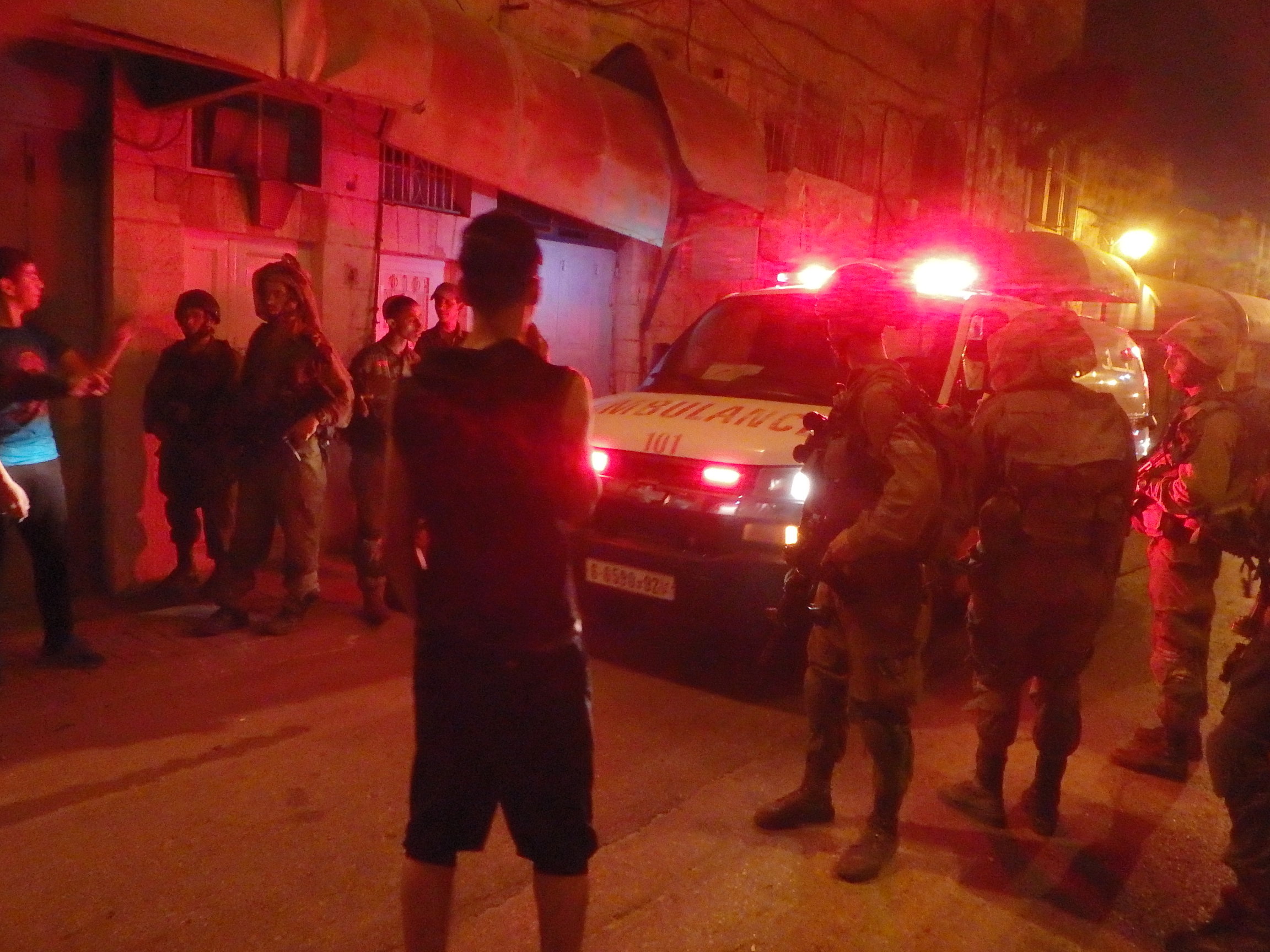Category: Reports
-
Israeli settlers attack Palestinian family in Hebron, injuring five people including a child
20th July 2014 | International Solidarity Movement, Khalil team | Hebron, Occupied Palestine At midnight this evening in al-Khalil (Hebron), a large group of settlers from nearby illegal settlements, attacked the home of the Al-Sharabati family. Some of the settlers were intoxicated as they forcefully attempted to enter the Palestinian home; Israeli soldiers nearby watched the incident and made…
-
Israeli forces shoot 20-year-old with live ammunition during Ni’lin demonstration
18th July 2014 | International Solidarity Movement, Ramallah | Ni’lin, Occupied Palestine Today at the weekly demonstration in the village of Ni’lin near Ramallah, the Israeli military shot live ammunition at protesters. Palestinians, Israeli activists, and internationals marched through the olive groves belonging to the village, demanding their land back and freedom for all Palestinians, only to be met by a cloud…
-
El-Wafa Elderly Nursing Home shelled by the Israeli military
16th July 2014 | International Solidarity Movement, Charlie Andreasson | Gaza, Occupied Palestine After a night of heavy shelling in the area, the day is dawning in Gaza. The clock ticks pass 08:00; past the evacuation time the Israeli military gave to el-Wafa hospital the previous evening. The patients were not evacuated; there is nowhere…



